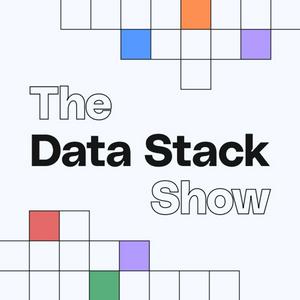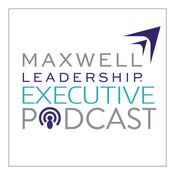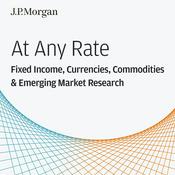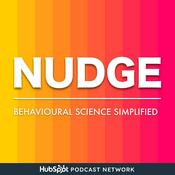500 episodes
Re-Air: Data Teams at the Crossroads: Proving Value in a Changing Business Landscape with Ben Rogojan
2026/2/11 | 52 mins.This episode is a re-air of one of our most popular conversations, featuring insights worth revisiting. Thank you for being part of the Data Stack community. Stay up to date with the latest episodes at datastackshow.com.
This week on The Data Stack Show, John welcomes back repeat-guest Ben Rogojan, Owner and Data Consultant of Seattle Data Guy. John and Ben discuss the evolving relationship between data teams and businesses, highlighting the challenges of proving value in a cost-conscious environment. Ben explores the impact of technological advancements, the rise of AI, and the critical skills data professionals need to succeed. Key insights include the importance of understanding business context, being proactive, and focusing on delivering tangible outcomes rather than just producing dashboards. Ben also emphasizes the need for data teams to communicate value effectively, show rather than tell, and be willing to take calculated risks. The conversation provides practical advice for data professionals looking to advance their careers, with a focus on developing business skills, understanding organizational needs, creating meaningful impact beyond technical expertise, and so much more.
Technical Freelancer Academy & Consulting Community (1:21)
Evolution of Data Teams and Technology (2:52)
Data Team Growth and Output vs. Outcome (4:47)
Internal Optimization vs. Client-Facing Data Work (7:23)
Audience, Delivery Mechanisms, and Actionability (12:40)
Proving ROI and Prioritizing Work (15:27)
Practical Tips for Data Team-Business Alignment (18:31)
Dealing with Vanity and Security Blanket Metrics (23:39)
AI’s Impact on Data Workflows (27:07)
BI Tools, AI Integration, and Dashboards (32:25)
Top Skills for Data Professionals (37:27)
Career Growth: Technical, Communication, and Business Skills (42:02)
Show, Don’t Tell: Prototyping and Feedback (44:37)
Taking Initiative and Risk in Data Roles (50:21)
Parting Advice and Closing Thoughts (51:16)
The Data Stack Show is a weekly podcast powered by RudderStack, customer data infrastructure that enables you to deliver real-time customer event data everywhere it’s needed to power smarter decisions and better customer experiences. Each week, we’ll talk to data engineers, analysts, and data scientists about their experience around building and maintaining data infrastructure, delivering data and data products, and driving better outcomes across their businesses with data.
RudderStack helps businesses make the most out of their customer data while ensuring data privacy and security. To learn more about RudderStack visit rudderstack.com.
Hosted by Simplecast, an AdsWizz company. See pcm.adswizz.com for information about our collection and use of personal data for advertising.Re-Air: From Anxiety to Advantage: Navigating Data’s AI Revolution with Barry McCardel of Hex
2026/1/14 | 1h 3 mins.This episode is a re-air of one of our most popular conversations, featuring insights worth revisiting. Thank you for being part of the Data Stack community. Stay up to date with the latest episodes at datastackshow.com.
This week on The Data Stack Show, Barry McCardel, CEO and Co-Founder of Hex, joins Eric Dodds and John Wessel to discuss the transformative impact of AI on data teams and the broader data industry. The conversation explores how AI is reshaping workflows, team structures, and the very definition of data roles, while also addressing the anxieties and opportunities that come with rapid change. Barry shares Hex’s journey from having a dedicated AI team to fully integrating AI across the product, and offers insights on industry consolidation, the infinite demand for data insights, and the importance of embracing change. Key takeaways include the need for data professionals to adapt and focus on problem-solving, the growing value of context and curation, the competitive advantage for organizations that leverage AI-driven tools and foster a culture of innovation, and so much more.
Highlights from this week’s conversation include:
Welcoming Back Barry to The Show (1:07)
Discussing Change, Uncertainty, And Anxiety In Data Roles (3:13)
Exploring Excitement And Opportunity In AI Adoption (6:20)
Redefining Data Roles And The Infinite Demand For Insight (9:37)
The Impact Of AI On Data Workflows And Team Mindset (12:52)
Evolving Team Structures And The End Of The Magic Team (16:49)
Integrating AI Into Product Development At Hex (20:44)
Comparing Industry Approaches To AI Features (24:56)
How AI Changes Daily Workflows For Data Teams (28:52)
The Virtuous Cycle Of Context, Curation, And Self-Serve (32:39)
Managing Context And Evaluating AI Agent Performance (36:52)
The Expanding Role Of Data Professionals In The AI Era (40:45)
Industry Consolidation And The Modern Data Stack (44:32)
Lessons From Acquisitions And Platform Shifts (48:18)
Key Takeaways And Looking Ahead To Future Episodes (52:16)
The Data Stack Show is a weekly podcast powered by RudderStack, customer data infrastructure that enables you to deliver real-time customer event data everywhere it’s needed to power smarter decisions and better customer experiences. Each week, we’ll talk to data engineers, analysts, and data scientists about their experience around building and maintaining data infrastructure, delivering data and data products, and driving better outcomes across their businesses with data.
RudderStack helps businesses make the most out of their customer data while ensuring data privacy and security. To learn more about RudderStack visit rudderstack.com.
Hosted by Simplecast, an AdsWizz company. See pcm.adswizz.com for information about our collection and use of personal data for advertising.- This episode is a re-air of one of our most popular conversations from this year, featuring insights worth revisiting. Thank you for being part of the Data Stack community. Stay up to date with the latest episodes at datastackshow.com.
This week on The Data Stack Show, John and Matt dive into the latest trends in AI, discussing the evolution of GPT models, the role of tools in reducing hallucinations, and the ongoing debate between data warehouses and agent-based approaches. They also explore the complexities of risk-taking in data teams, drawing lessons from Nate Silver’s book on risk and sharing real-world analogies from cybersecurity, football, and political campaigns. Key takeaways include the importance of balancing innovation with practical risk management, the need for clear recommendations from data professionals, the value of reading fiction to understand human behavior in data, and so much more.
Highlights from this week’s conversation include:
Initial Impressions of GPT-5 (1:41)
AI Hallucinations and the Open-Source GPT Model (4:06)
Tools and Determinism in AI Agents (6:00)
Risks of Tool Reliance in AI (8:05)
The Next Big Data Fight: Warehouses vs. Agents (10:21)
Real-Time Data Processing Limitations (12:56)
Risk in Data and AI: Book Recommendation (17:08)
Measurable vs. Perceived Risk in Business (20:10)
Security Trade-Offs and Organizational Impact (22:31)
The Quest for Certainty and Wicked Learning Environments (27:37)
Poker, Process, and Data Team Longevity (29:11)
Support Roles and Limits of Data Teams (32:56)
Final Thoughts and Takeaways (34:20)
The Data Stack Show is a weekly podcast powered by RudderStack, customer data infrastructure that enables you to deliver real-time customer event data everywhere it’s needed to power smarter decisions and better customer experiences. Each week, we’ll talk to data engineers, analysts, and data scientists about their experience around building and maintaining data infrastructure, delivering data and data products, and driving better outcomes across their businesses with data.
RudderStack helps businesses make the most out of their customer data while ensuring data privacy and security. To learn more about RudderStack visit rudderstack.com.
Hosted by Simplecast, an AdsWizz company. See pcm.adswizz.com for information about our collection and use of personal data for advertising. Re-Air: Bridging Gaps: DevRel, Marketing Synergies, and the Future of Data with Pedram Navid of Dagster Labs
2025/11/26 | 53 mins.This episode is a re-air of one of our most popular conversations from this year, featuring insights worth revisiting. Thank you for being part of the Data Stack community. Stay up to date with the latest episodes at datastackshow.com.
This week on The Data Stack Show, John and Matt welcome Pedram Navid, Chief Dashboard Officer at Dagster Labs. During the conversation, Pedram shares his career evolution from consulting to his current role, where he oversees data, developer relations (DevRel), and marketing. The discussion delves into the synergies between DevRel and marketing, emphasizing the importance of understanding developers' learning preferences. Pedram explains data orchestration, highlighting its role in managing and automating data workflows. He also discusses Daxter's unique asset-based approach, which enhances visibility and control over data processes, catering to users from novices to experts, and so much more.
Highlights from this week’s conversation include:
Pedram’s Background and Journey in Data (0:47)
Joining Dagster Labs (1:41)
Synergies Between Teams (2:56)
Developer Marketing Preferences (6:06)
Bridging Technical Gaps (9:54)
Understanding Data Orchestration (11:05)
Dagster's Unique Features (16:07)
The Future of Orchestration (18:09)
Freeing Up Team Resources (20:30)
Market Readiness of the Modern Data Stack (22:20)
Career Journey into DevRel and Marketing (26:09)
Understanding Technical Audiences (29:33)
Building Trust Through Open Source (31:36)
Understanding Vendor Lock-In (34:40)
AI and Data Orchestration (36:11)
Modern Data Stack Evolution (39:09)
The Cost of AI Services (41:58)
Differentiation Through Integration (44:13)
Language and Frameworks in Orchestration (49:45)
Future of Orchestration and Closing Thoughts (51:54)
The Data Stack Show is a weekly podcast powered by RudderStack, the CDP for developers. Each week we’ll talk to data engineers, analysts, and data scientists about their experience around building and maintaining data infrastructure, delivering data and data products, and driving better outcomes across their businesses with data.
RudderStack helps businesses make the most out of their customer data while ensuring data privacy and security. To learn more about RudderStack visit rudderstack.com.
Hosted by Simplecast, an AdsWizz company. See pcm.adswizz.com for information about our collection and use of personal data for advertising.Re-Air: Context is King: Building Intelligent AI Analytics Platforms with Paul Blankley of Zenlytic
2025/11/19 | 42 mins.This episode is a re-air of one of our most popular conversations from this year, featuring insights worth revisiting. Thank you for being part of the Data Stack community. Stay up to date with the latest episodes at datastackshow.com. This week on The Data Stack Show, John chats with Paul Blankley, Founder and CTO of Zenlytic, live from Denver! Paul and John discuss the rapid evolution of AI in business intelligence, highlighting how AI is transforming data analysis and decision-making. Paul also explores the potential of AI as an "employee" that can handle complex analytical tasks, from unstructured data processing to proactive monitoring. Key insights include the increasing capabilities of AI in symbolic tasks like coding, the importance of providing business context to AI models, and the future of BI tools that can flexibly interact with both structured and unstructured data. Paul emphasizes that the next generation of AI tools will move beyond traditional dashboards, offering more intelligent, context-aware insights that can help businesses make more informed decisions. It’s an exciting conversation you won’t want to miss.
Highlights from this week’s conversation include:
Welcoming Paul Back and Industry Changes (1:03)
AI Model Progress and Superhuman Domains (2:01)
AI as an Employee: Context and Capabilities (4:04)
Model Selection and User Experience (7:37)
AI as a McKinsey Consultant: Decision-Making (10:18)
Structured vs. Unstructured Data Platforms (12:55)
MCP Servers and the Future of BI Interfaces (16:00)
Value of UI and Multimodal BI Experiences (18:38)
Pitfalls of DIY Data Pipelines and Governance (22:14)
Text-to-SQL, Semantic Layers, and Trust (28:10)
Democratizing Semantic Models and Personalization (33:22)
Inefficiency in Analytics and Analyst Workflows (35:07)
Reasoning and Intelligence in Monitoring (37:20)
Roadmap: Proactive AI by 2026 (39:53)
Limitations of BI Incumbents, Future Outlooks and Parting Thoughts (41:15)
The Data Stack Show is a weekly podcast powered by RudderStack, customer data infrastructure that enables you to deliver real-time customer event data everywhere it’s needed to power smarter decisions and better customer experiences. Each week, we’ll talk to data engineers, analysts, and data scientists about their experience around building and maintaining data infrastructure, delivering data and data products, and driving better outcomes across their businesses with data.
RudderStack helps businesses make the most out of their customer data while ensuring data privacy and security. To learn more about RudderStack visit rudderstack.com.
Hosted by Simplecast, an AdsWizz company. See pcm.adswizz.com for information about our collection and use of personal data for advertising.
More Business podcasts
Trending Business podcasts
About The Data Stack Show
Each week we’ll talk to data engineers, analysts, and data scientists about their experience around building and maintaining data infrastructure, delivering data and data products, and driving better outcomes across their businesses with data.
Podcast websiteListen to The Data Stack Show, Bruce Whitfield’s Business Week and many other podcasts from around the world with the radio.net app

Get the free radio.net app
- Stations and podcasts to bookmark
- Stream via Wi-Fi or Bluetooth
- Supports Carplay & Android Auto
- Many other app features
Get the free radio.net app
- Stations and podcasts to bookmark
- Stream via Wi-Fi or Bluetooth
- Supports Carplay & Android Auto
- Many other app features


The Data Stack Show
Scan code,
download the app,
start listening.
download the app,
start listening.

































